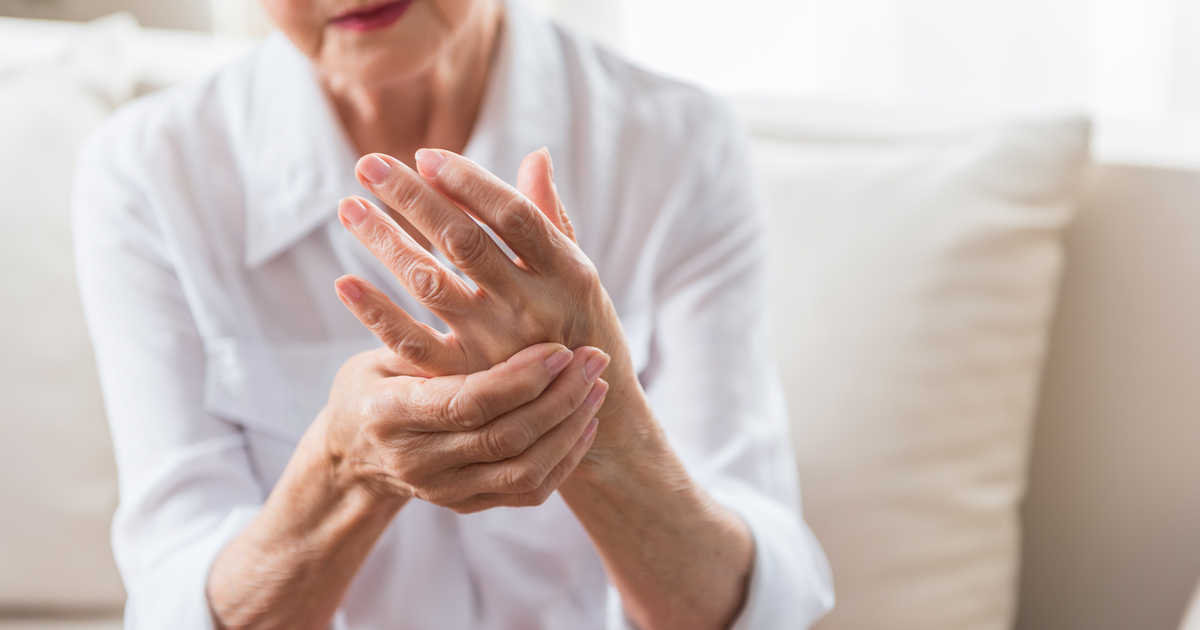Most independent elderly Americans enjoy active, busy lifestyles. But over 32 million seniors also live with osteoarthritis, a degenerative “wear-and-tear” joint disease that may come about due to the aging process. Osteoarthritis can cause joint pain, stiffness and swelling, and for some its effects can be debilitating. Eventually osteoarthritis symptoms can get so bad that they interfere with a senior’s mobility and activities of daily living (ADLs). If you are currently looking after aging loved one who’s dealing with osteoarthritis, here’s how to help them enjoy a higher quality of life.
Osteoarthritis Facts and Figures
As the most common type of arthritis, osteoarthritis (OA) is a degenerative joint disease that primarily targets the hips, knees and hands. With OA, the cartilage within a joint begins to break down as the supporting structures- like bone- begin to change. Those physiological changes typically develop slowly and then grow progressively worse over time.
Risk factors for primary or secondary osteoarthritis include:
- Age
- Joint injury or overuse
- Gender- women are more likely to develop OA than men
- Genetics
- Inactivity
- Obesity
- Race- Some Asian populations have a lower risk for OA
- Inflammation caused by rheumatoid arthritis
These are the most common symptoms of osteoarthritis:
- Joint pain or tenderness
- Stiffness or limited range of motion
- Joint instability
- Inflammation or enlargement of joints
- Joint deformity or malalignment
- Crepitus (cracking, grinding or popping)
In addition to looking for the telltale signs of osteoporosis, a doctor may order X-rays and fluid samples from the affected joint(s) before making a definitive diagnosis.
Osteoarthritis Management Tips for Seniors
For most seniors dealing with osteoarthritis, living a healthier, more active lifestyle is possible by following these guidelines:
Exercise regularly
If otherwise healthy enough to do so, encourage your senior to participate in low-impact forms of exercise like Yoga, walking on level surfaces, swimming or water aerobics. Exercising for at least 20 minutes 3 to 5X per week will help reduce joint stiffness, improve range of motion and strengthen muscles that support arthritic joints.
In general, regular exercise is also a great stress reducer and sleep inducer. It’s also an effective way to boost cardiovascular endurance and normalize blood sugar levels.
Lose weight
Carrying around excess body weight places added stress on achy joints. Talk to your loved one about ways to shed unwanted pounds like exercising regularly, eating a healthier, nutrient-rich diet and spending less time sitting on the couch in front of a TV.
Protect sensitive joints
Experiencing subsequent joint injuries can worsen osteoarthritis. Help your senior protect sensitive joints by avoiding activities like heavy lifting, repetitive movements or high-impact exercises. Using heat or cold packs intermittently on inflamed joints also helps relieve swelling and discomfort.
You can also get your loved one a support or orthotic wrap to wear, or encourage them to use an assistive walking device or adaptive equipment on days when their OA flareups are more noticeable.
Wear adaptive clothing
For someone with advanced osteoarthritis getting dressed can be a painful and frustrating experience. Help your loved one find some adaptive wardrobe items like shoes or coats that fasten with Velcro®, side opening skirts or pants, or shirts with magnetic buttons.
Seek medical attention
Speak to your loved one’s doctor about treatment options for their arthritis, especially if it’s interfering with their activities of daily living. There are various oral medications, injections and non-drug treatments that a physician can recommend.
Alternative treatments for osteoarthritis also exist, including acupuncture, occupational therapy and meditative stress-management techniques like Yoga and Tai Chi. If the pain and inflammation become severe enough, a doctor can even inject a corticosteroid directly into the joint.
Compassionate Home Care for Seniors with Osteoarthritis
Assisting an aging love one with osteoarthritis can be overwhelming when you’re busy or live far away. Put your mind at ease by contacting Seniors Prefer Homecare. As a fully licensed home care agency our highly trained caregivers can provide your senior with the nurturing they deserve as they continue aging comfortably in place right where they want to be. Our “cream of the crop” services include personal care, companionship care, dementia care, household duties, respite care and even live-in and 24-hour care.
At SPH, our compassionate professionals use a unique approach that’s designed to maintain your loved one’s quality of life, along with ensuring their dignity, independence and self-esteem. To learn more about our flexible rates and hours, or to schedule a FREE consultation for a senior in Huntsville or Tuscaloosa, AL, today, please visit Seniors Prefer Homecare at: www.seniorspreferhomecare.com!

